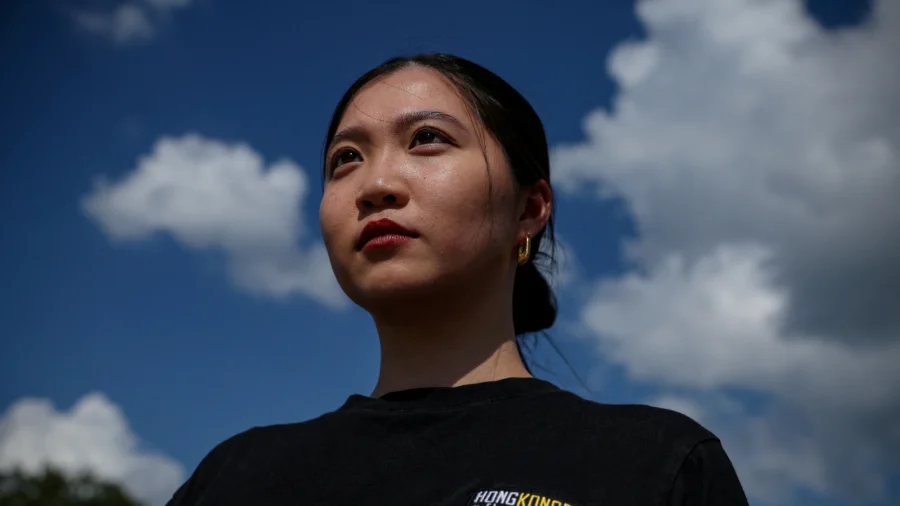The United States has condemned the Hong Kong government’s issuance of arrest warrants and bounties for pro-democracy activists abroad and the cancellation of seven additional passports, calling the move a blatant attempt to stifle dissent and extend transnational repression.
In a statement on Dec. 26, the U.S. Department of State said it rejected the Hong Kong government’s efforts to ” intimidate and silence individuals who choose to make the United States their home.”
“The United States does not waver in its advocacy for those who are targeted simply for exercising their right to freedom of expression,” the statement said.
This comes after Hong Kong’s security secretary, Chris Tang, accused six pro-democracy activists of committing crimes that include incitement, secession, subversion, and collusion with foreign forces. Tang said the six had compromised natural security by advocating for Hong Kong officials and judges to be sanctioned by foreign governments via speeches, social media posts, and lobbying.
In its statement, the State Department said Hong Kong’s actions disregard international norms and the rights to freedom of expression and peaceful assembly.
“We call on the Hong Kong government to stop using its national security laws to silence dissent,” the State Department said.
National Security Laws
The Hong Kong government’s moves stem from its controversial national security laws, which critics say are used to criminalize dissent and silence opposition voices worldwide.
The United States and the international community have repeatedly voiced concerns over the erosion of democratic freedoms in the former British colony after Beijing imposed a national security law in 2020 after months of pro-democracy protests. Until this point, Hong Kong had enjoyed a high degree of autonomy since the region was returned to China under the Sino-British Declaration.
However, the national security law gave Beijing sweeping powers to crack down on dissent and erode the city’s freedoms.
The broader implications of Hong Kong’s actions have been viewed as part of a wider trend of authoritarian regimes reaching beyond their border to suppress critics abroad.
Hong Kong police recently announced bounties for six pro-democracy activists who had escaped the city in light of Beijing’s increasing control. On Dec. 24, Hong Kong authorities issued arrest warrants for the six activists under the national security law, offering a reward of HK$1 million (US$128,800) for any information that could help locate them.
The latest move increases the number of individuals on the Hong Kong Police Force’s wanted list for purported breaches of the national security law imposed by Beijing from 13 to 19.
International criticism has emerged in response to these actions. The Inter-Parliamentary Alliance on China (IPAC), which includes hundreds of lawmakers from around the globe, condemned the recent arrest warrants in a post on X, saying “the continuing political persecution of these peaceful pro-democracy figures.”
IPAC also said on Dec. 24 that “the continued failure of the international community to hold China accountable for the dismantling of Hong Kong’s freedoms exacerbates transnational repression.”
Hong Kong’s move to target pro-democracy activists abroad came after the publication of a China report from the U.S. Congressional-Executive Commission on China (CECC) just days earlier. The report stated that Hong Kong has become “nearly indistinguishable from any other neon-lit city on the Chinese mainland” and that Hong Kong authorities “may now be more zealous than their mainland counterparts in enforcing national security laws.”
On Dec. 26, the State Department described the extraterritorial application of Hong Kong’s national security laws as a form of “transnational repression” that “threatens U.S. sovereignty and the human rights and fundamental freedoms of people all over the world.”
The State Department also separately condemned the Chinese regime for taking steps against two Canadian institutions and 20 people involved in human rights issues concerning the Uyghurs and Tibet.
Andrew Chen, Frank Fang, and Eva Fu contributed to this report.
From The Epoch Times

